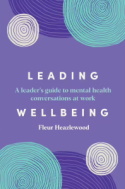For those who may have reached a mental road-block in their careers, Paul Lyons* outlines a process to get them back on track.
 Do you feel lost, perhaps overwhelmed, lacking the focus and drive you once had and as a result lacking direction and self-belief?
Do you feel lost, perhaps overwhelmed, lacking the focus and drive you once had and as a result lacking direction and self-belief?
Are you making sub-optimal decisions or perhaps avoiding making decisions altogether?
Are your results falling away?
If so, you may be surprised to know this happens to most people during the course of their careers and it certainly happened to me.
You can regain your mental toughness through this simple four-step process.
Write it down
As author, David Allen says in his book, Getting Things Done:
“Writing down every problem, every challenge, and every mental obstacle helps to better crystallise the thoughts and feelings that are swirling around your mind into more quantifiable points to consider.
“Most people try to use their psyche as their systemic process, which means issues gain importance based on your emotions.
“I’ve never met anyone who said they didn’t feel a little better if they sat down and made a list.
“Nothing changes when you write things down except how you engage with your issues: Then you can be objective and also be creative and intuitive.
“Without exception, you will feel better if you get stuff out of your head.”
I highly recommend this approach because by transferring all of your problems onto paper it takes a weight off your mind and into the note book.
Through this process, instead of feeling more overwhelmed, you’ll actually start to feel better. You’ll realise things aren’t as bad as you think.
You’ll also start to figure out ways to make things better, because you’ll have stopped passively worrying and started actively problem-solving.
What’s the worst?
Think about the worst that can happen.
Most of us make our fears and worries appear far worse in our head than they actually are.
Most of our fears, and almost all of our worries, turn out to be groundless, but it’s easy to feel powerless when you’re stewing in a pot of vague, indefinite concerns.
Think of the things in your life that have turned out as badly as you first imagined. I would guess it’s not many at all.
Review your list, then back away from the edge by determining the ‘worst’ things that are most likely to happen.
Then create plans to deal with those possibilities.
Worries are just possibilities you haven’t decided to face. When you don’t face them, you can’t control them.
Focus on facts
It helps your situation to focus only on what you do have and not on what you don’t have.
Almost every crisis involves loss: Losing a job, losing clients, losing opportunities or options.
This means your natural emotional response is to focus on what you no longer have.
What matters more is what you still do have. Author and entrepreneur, Jeff Haden explains how the Navy Seals rationalise this.
“The key is to reverse the natural downward mental spiral,” Mr Haden says.
“You may be separated from your team. You may have lost communications. You may be in hostile territory.
“Worrying about those things doesn’t help. They’re gone, so ignore them. Instead, focus on your positives.
“Maybe you’re not wounded. Maybe you have plenty of ammo. You’re definitely highly trained.
“List what you have, and then use one of them to do one positive thing. Then do another, and another.
“Just keep going and keep building on what you have.
“No matter how bleak a situation may seem, you will always have a few things still going for you. Always start with those.”
Be more positive
Embrace positive self-talk, but remain realistic.
Whilst it’s important to maintain a balance between optimism and realism, research shows that thinking more positively and embracing more positive self-talk can help you make better decisions.
Effective self-talk is grounded in reality.
Accurately assessing the situation, understanding the downside, being objective about what you face — that’s absolutely critical.
Otherwise, you can’t plan effectively. You can’t harness applicable positives. You can’t overcome a problem if you don’t understand it.
That’s why you’ve listed your fears, considered worst-case scenarios, developed plans, and listed what you still have going for you.
Doing that adds weight to your self-affirmations.
Staying positive, staying mentally tough, embracing irrational optimism — those aren’t forms of denial.
They’re tools you can use to make the most of your skills, judgment, experience, and effort.
While you may not be able to change the situation you find yourself in, you can definitely change the way you respond.
Especially when you regain the mental toughness you need to see the challenge through.
*Paul Lyons is an experienced business leader, adviser and coach enjoying a diverse career across Australia and Asia. He can be contacted at [email protected].
This article first appeared on the Mental Toughness blogsite.











